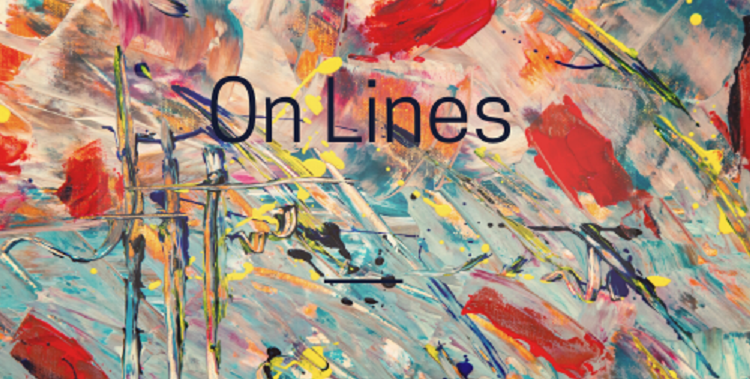Albus McInerney edits a literary magazine.
‘Tyranny is a virus,’ Dimitri said. ‘Truth is the antidote. It has to be prescribed and administered.’
‘That’s not entirely encouraging,’ Patrice remarked. He is gloomy over the state of things in Hongkong.
Kim is gloomy over the state of things on the other side of the pond. ‘The lies become bigger,’ she said, ‘as the gap between rhetoric and reality expands.’
‘But the truth will prevail,’ Rami said, with commendable certainty, and then she added, ‘Won’t it?’ Which rather undermined the initial conviction. She continued, however. ‘Disingenuous assertions are confounded by their own logic, eventually. Demagogues are embarrassed by their own inconsistencies.’
‘What a tangled web we weave,’ I suggested, ‘when first we practise to deceive!’
‘Kogo Lyubit?’ Dimitri said, perhaps with a tad more panache. ‘Komu Zheverit? Kto ne izmenit nam odin? Kto vsedela, vserechimerit Usluzhlivo na nash arshin.’
Striking though this rendition undoubtedly was, I felt Dimitri might have put something of a linguistic spanner in the dialectical works, but Kim, rather to my surprise, said, ‘I know that one!’
‘Of course you do!’ Dimitri grinned indulgently, and his moustache, it seemed to me, stuck out even further from his cheeks, like the indicators on a vintage motorcar.
‘It’s Onegin,’ Kim said, ‘but I forget which bit.’
Kogo . . . Kto . . . Kto . . . who will judge . . . love . . . measure.’ Patrice sometimes tinkers with language – like a mechanic under one of those ancient automobiles.
‘Whom to love and trust and treasure,’ Rami said. ‘Who won’t betray us in the end?’
I thought at first that this was a spontaneous (and rather disconcerting) cry from the heart, but then I realized that Rami was quoting – from the very same Onegin. ‘And who will be kind enough to measure / Our words and deeds as we intend?’ she concluded.
‘I am among my own!’ Dimitri said.
‘But, Dimitri, you’re not Russian,’ I said, perhaps a little pedantically, ‘and, for that matter, neither are we.’
‘But we are admirers of Pushkin,’ he replied, to which there was really no argument.
‘I did a production of Onegin in Mombasa years ago,’ Rami said. ‘The Russians were keen at the time to sponsor the Kenyan theatre – and sell helicopters.’
‘The only quote I know from Onegin is the one the movie studio stole for Casablanca,’ I said.
‘Albus,’ Patrice’s tone was unusually severe. ‘That’s too opaque to be sociable.’
‘Of all the gin joints . . .’ I began.
Dimitri took over in the Pushkin original, which – clearly – I couldn’t compete with. He recited the couplet: ‘Zachem vy posetili nas? V glushi zabytogo selen’ya’
“Why did you come here?’ Rami translated, ‘To this forgotten village in the back of beyond.’
‘Well, it’s not quite Bogart, but the comparison holds,’ Patrice said.
‘Scott and Pushkin,’ Kim said, ‘had a great deal in common.’
‘Scott and Pushkin?’ Rami asked.
‘Albus quoted Scott’s line – what a tangled web,’ Kim said.
‘The hero of that poem is a nasty piece of work,’ I said, ‘He keeps seducing women and casting them aside and then getting other people into trouble. Just like Onegin.’
‘Pushkin was a disciple of Scott,’ Kim continued, ‘but more ruthless. Flawed protagonists are his speciality. The Queen of Spades is all about cheating and the lengths the hero will go in order to win at cards.’
‘He’s exposed in the end, though, ‘Patrice said. ‘That’s the saving grace. The gulf between disingenuous assertion and reality becomes plain for all to see.’
‘I wish it would happen here,’ Kim said.
‘And here,’ Patrice echoed.
‘It might,’ Rami said. ‘Scott’s protagonist gives up the fight in the end, because a sinful heart makes feeble hand’.
‘Didn’t Pushkin say something clever about choices in “our age of infamy”?’ I asked.
‘The choice,’ Dimitri said, ‘is to be a tyrant, a traitor or a prisoner.’
‘Ah,’ Kim said, with a certain relish, ‘when the truth is administered, justice surely follows in its wake.’
‘It’s part of the recovery process,’ Dimitri said.
This was an observation with which no one disagreed.
